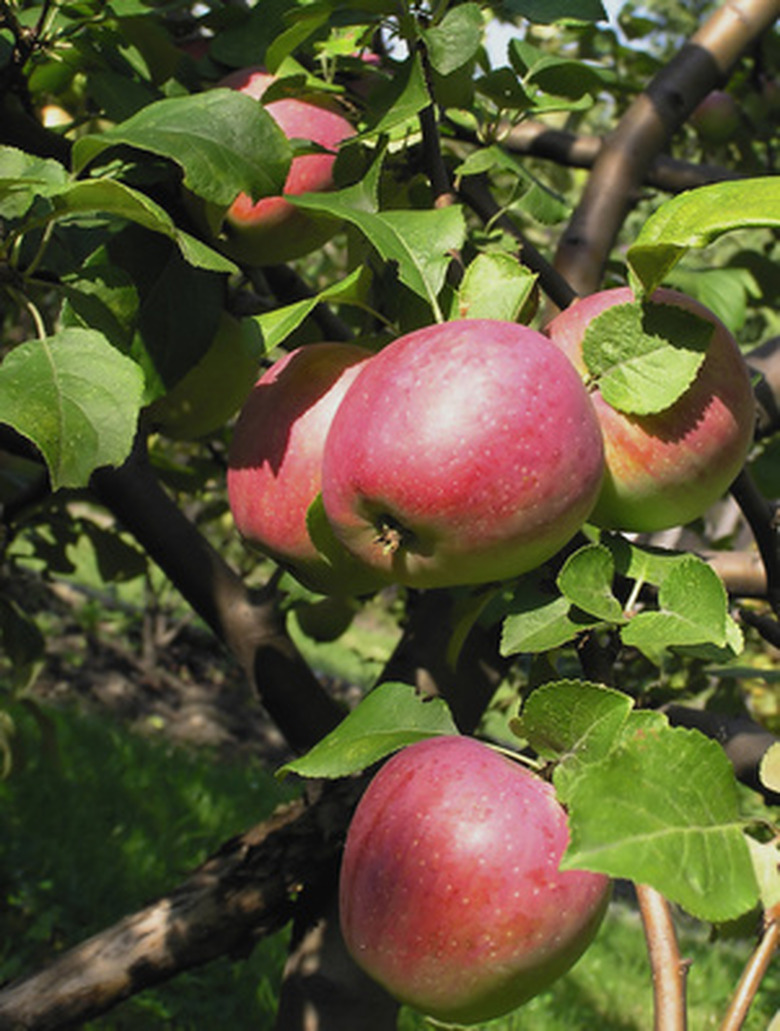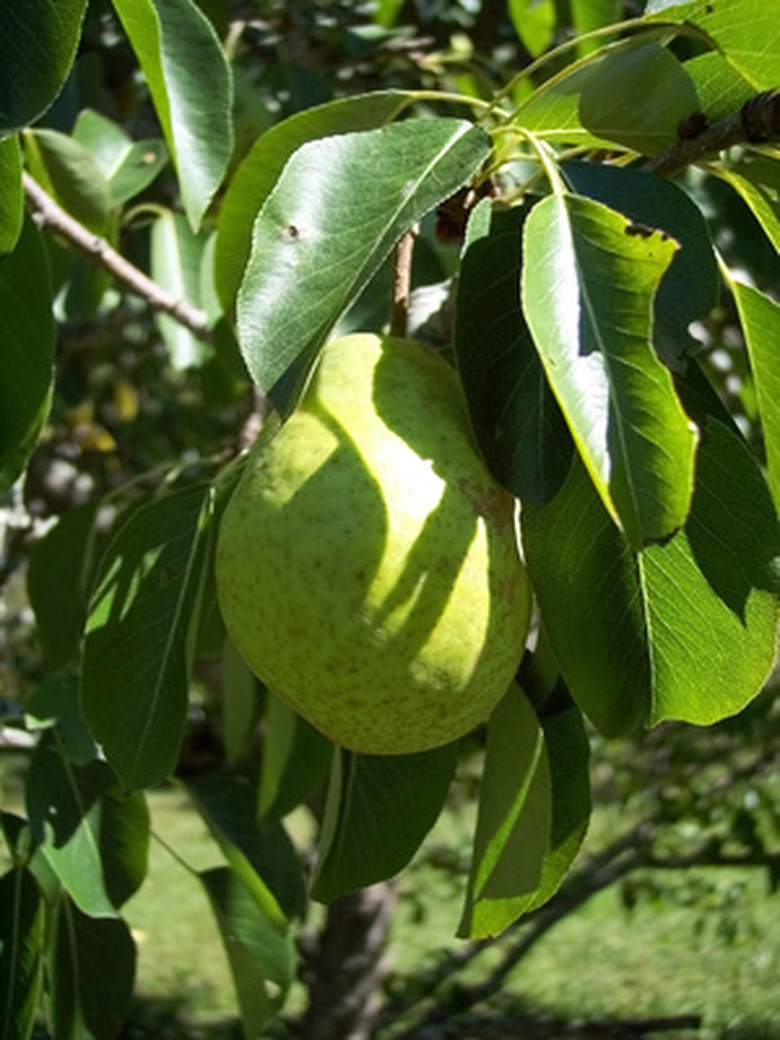The Best Fruit Trees For Tennessee
Tennessee has varied growing seasons, with an average 235 days in the western part of the state and only 130 days in the cooler, mountainous east. Different fruit types and different species require different periods of cold dormancy, and fruit tree varieties should be chosen according to the temperatures of the zone where they will be planted. Soil testing is also important, because soil types vary widely from the rocky eastern soil to the sandy silt of western Tennessee. Apply soil amendments and fertilizer according to information from your soil test.
Fruit trees are ideal for landscaping use in Tennessee. They provide lovely spring blossoms, and mature standard-size varieties provide welcome summer shade. Dwarf varieties are suitable to use in landscaping anyplace you need a small tree or shrub.
- Tennessee has varied growing seasons, with an average 235 days in the western part of the state and only 130 days in the cooler, mountainous east.
- Different fruit types and different species require different periods of cold dormancy, and fruit tree varieties should be chosen according to the temperatures of the zone where they will be planted.
Apples
Apples require a dormant chill period each winter in order to set fruit the following year. The rootstock determines the hardiness of the apple tree, while the grafted top portion determines the variety of apple. The recommended rootstock for a Tennessee apple tree is either Malling or Malling/Merton. Nurseries refer to these as "M" or "MM" rootstocks. Traditional pruning to a central leader is recommended. Two or more varieties of apples are required for good pollination. Liberty is an excellent apple variety to grow anywhere in Tennessee. It is a resistant variety that does not need much spraying. The apples are red, and they are good for eating fresh, cooking, and storage. Golden Delicious is a good pollinator variety.
- Apples require a dormant chill period each winter in order to set fruit the following year.
- Two or more varieties of apples are required for good pollination.
Peaches
Peach trees do not tolerate extremely cold winter temperatures, and late spring frost will kill the flowers or buds, ruining that year's crop. Tennessee's climate is suitable for peach growing, especially in the central and western portions of the state where average temperatures are warmer. The Tennessee Department of Agriculture recommends Lovell and Halford rootstocks, with your choice of fruiting graft. Elberta and Red Haven are ideal peach varieties for Tennessee growers. Peach trees should be pruned with an open center for good light penetration and good air circulation. Peach blossoms are self-fertile, so more than one variety is not necessary.
Pears
Pear trees are ideal for Tennessee fruit growers. They require chill dormancy in the winter, and warm spring weather. Growers must plant two pear varieties for pollination. Two suggested pear varieties for Tennessee are Ambrosia and Moonglow. Moonglow is nearly immune to fire blight, a serious disease that infects pear trees. Both Ambrosia and Moonglow ripen in late August, and both are excellent for eating fresh or for canning.
- Peach trees do not tolerate extremely cold winter temperatures, and late spring frost will kill the flowers or buds, ruining that year's crop.
- Elberta and Red Haven are ideal peach varieties for Tennessee growers.



